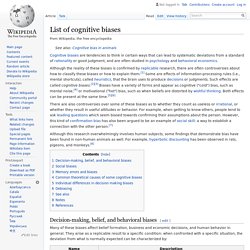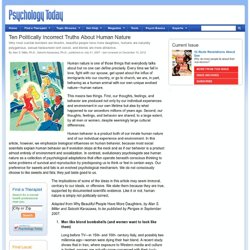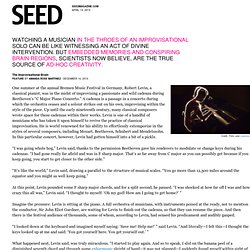

100 Best Blogs for Psychology Students. With the availability of so many different blogs and other internet resources, psychology students today have a unique opportunity to gain insights and perspectives not otherwise available to their predecessors.

Some information comes straight from professionals, others from students, and still others straight from the patients themselves. Though one should always practice discretion when perusing data and research on the internet, most researchers professionally offer links to reliable sources such as journal articles and websites for the American Psychological Association, National Institute of Mental Health, and other respected organizations. The internet provides a wealth of opinions and experiences for psychology students to discover every facet of their chosen discipline. 1.PsyBlog : University College London researcher Jeremy Dean posts articles relating to the scientific aspect of psychology with the hopes of highlighting how it factors into everyday life. 28.Dr. 32.PANIC! Paul Bloom: The origins of pleasure. 10 Ways Our Minds Warp Time.
How time perception is warped by life-threatening situations, eye movements, tiredness, hypnosis, age, the emotions and more… The mind does funny things to our experience of time.

Just ask French cave expert Michel Siffre. In 1962 Siffre went to live in a cave that was completely isolated from mechanical clocks and natural light.
Intelligence. Bananas and Monkeys. Original source unknown.

(But the story appears to have some basis in fact.) Start with a cage containing five monkeys. Inside the cage, hang a banana on a string and place a set of stairs under it. Before long, a monkey will go to the stairs and start to climb towards the banana. As soon as he touches the stairs, spray all of the other monkeys with cold water.
After a while, another monkey makes an attempt with the same result - all the other monkeys are sprayed with cold water. Now, put away the cold water. Color Psychology. By David Johnson Like death and taxes, there is no escaping color.

It is ubiquitous. Yet what does it all mean? Faulty Human Thought. Humans This list is a follow up to Top 10 Common Faults in Human Thought.

Thanks for everyone’s comments and feedback; you have inspired this second list! List of Cognitive Biases. Cognitive biases are tendencies to think in certain ways that can lead to systematic deviations from a standard of rationality or good judgment, and are often studied in psychology and behavioral economics.

There are also controversies over some of these biases as to whether they count as useless or irrational, or whether they result in useful attitudes or behavior. For example, when getting to know others, people tend to ask leading questions which seem biased towards confirming their assumptions about the person. Politically Incorrect Human Nature. Human nature is one of those things that everybody talks about but no one can define precisely.

Every time we fall in love, fight with our spouse, get upset about the influx of immigrants into our country, or go to church, we are, in part, behaving as a human animal with our own unique evolved nature—human nature. Hedgehog's Dilemma. Both Arthur Schopenhauer and Sigmund Freud have used this situation to describe what they feel is the state of individual in relation to others in society.

The hedgehog's dilemma suggests that despite goodwill, human intimacy cannot occur without substantial mutual harm, and what results is cautious behavior and weak relationships. With the hedgehog's dilemma, one is recommended to use moderation in affairs with others both because of self-interest, as well as out of consideration for others. The hedgehog's dilemma is used to explain introversion and isolationism. Schopenhauer[edit] The Brain on Improv.
Credit: Flickr user maistora One summer at the annual Bremen Music Festival in Germany, Robert Levin, a classical pianist, was in the midst of improvising a passionate and wild cadenza during Beethoven’s “C Major Piano Concerto.”

A cadenza is a passage in a concerto during which the orchestra ceases and a soloist strikes out on his own, improvising within the style of the piece. Up until the early nineteenth century, many classical composers wrote space for these cadenzas within their works. DIY Psych Experiments. Top Psychology Studies. The end of 2010 fast approaches, and I'm thrilled to have been asked by the editors of Psychology Today to write about the Top 10 psychology studies of the year. I've focused on studies that I personally feel stand out, not only as examples of great science, but even more importantly, as examples of how the science of psychology can improve our lives.
Each study has a clear "take home" message, offering the reader an insight or a simple strategy they can use to reach their goals , strengthen their relationships, make better decisions, or become happier. If you extract the wisdom from these ten studies and apply them in your own life, 2011 just might be a very good year. 1) How to Break Bad Habits If you are trying to stop smoking , swearing, or chewing your nails, you have probably tried the strategy of distracting yourself - taking your mind off whatever it is you are trying not to do - to break the habit.
J. 2) How to Make Everything Seem Easier J. Psychology Documentaries.